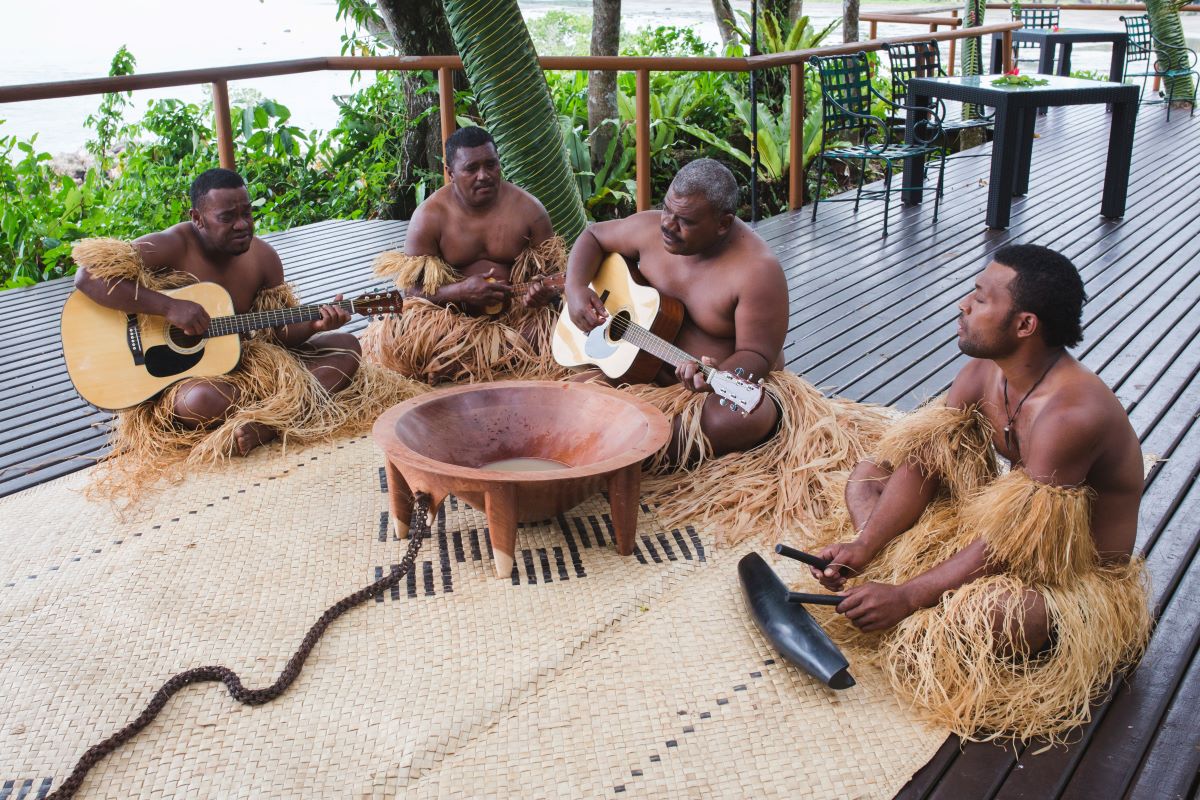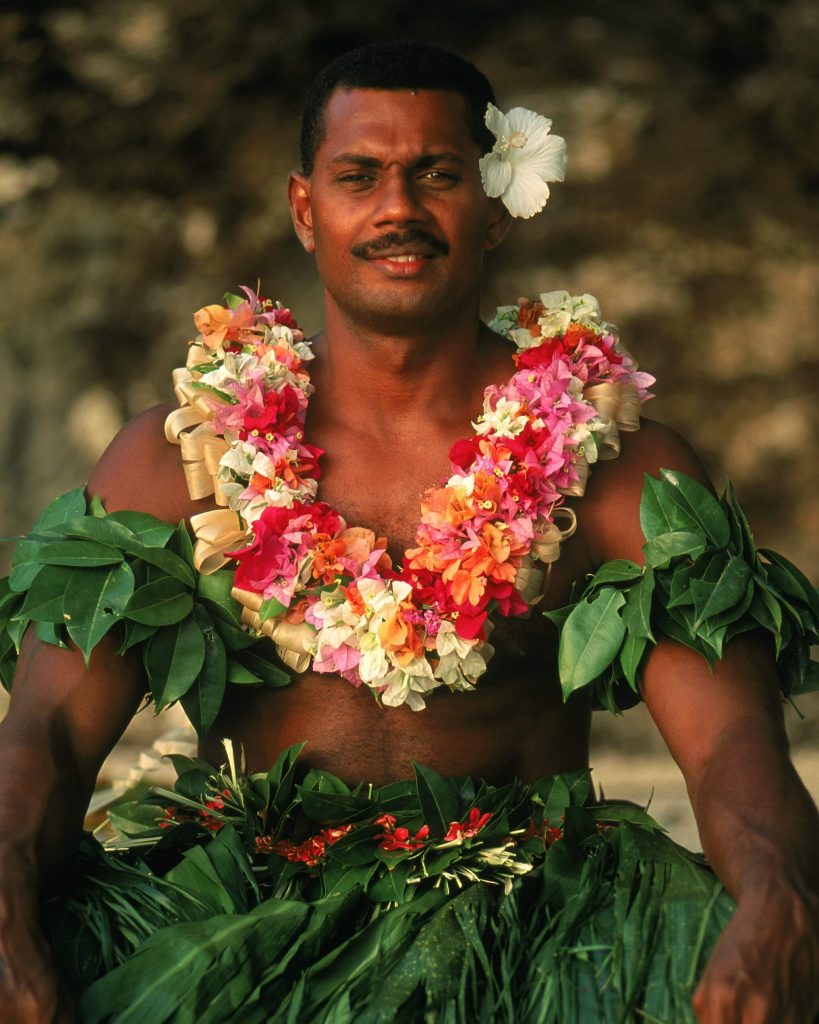Fiji has so many things to love, from its delicious cuisine and fascinating culture to its picturesque scenery and exciting excursions. While you’re here, you can practice your Fijian, make friends with the locals, and join in cultural traditions. However, to deeply and fully appreciate this incredible collection of islands it helps to understand Fijian history. The more you know about Fiji history, the more you’ll enjoy it!
If you’re finding yourself wondering what is the history of Fiji we have you covered. Our guide below answers some of your most frequently asked questions regarding Fiji’s history, from its early beginnings to its famous rituals. Where did Fijians originate? And what are the islands most famous for? Follow along to get the inside scoop on the history of Fiji!
The Dawn of Fiji: Ancient Beginnings
Volcanic activity formed these islands over 150 million years ago! While the archipelago is now considered dormant, geothermal activity is still present in this section of the South Pacific as seafloor spreading still occurs.
The Era of Exploration: European Discovery
Native peoples inhabited the Fijian islands long before European explorers discovered the area. It was thousands of years before the first explorer ever caught wind of the archipelago. Interesting fact that some tribes in Fiji were cannibals before the Europeans arrived.
Navigators and the Mapping of the Islands
In 1643, a Dutch navigator named Abel Tasma spotted Vanua Levu Island during his travels around the South Pacific. However, it wasn’t until the 1700s that any explorers stepped foot on the islands— British Captain James Cook eventually visited one of the lower islands in 1774.
In the following years, European ships traveled by the Fijian islands but avoided landing there, as they were told Fijians were cannibals. That said, by the 1800s, traders and settlers got brave and began making their homes on the islands and introducing the islands to European culture and religion.
European explorers initially avoided landing on the Fijian islands due to rumors of cannibalism among the native population. However, by the 1800s, traders and settlers became bolder, introducing European culture and religion to the islands and marking a significant turning point in Fiji’s history.
The Transition to Modernity: Colonial Fiji
During this time, Fiji became a crucial hub in the British Empire’s Pacific network, serving as a strategic outpost for trade and communication. The colonial administration changed land ownership, labor systems, and governance, profoundly impacting Fijian society.
The arrival of European settlers and indentured laborers from India further transformed Fiji’s demographic and cultural landscape. This period of colonial rule laid the groundwork for modern Fiji, influencing its institutions, infrastructure, and identity in complex ways.
British Influence and Changes in Governance
Great Britain established the Colony of Fiji in 1874. Fiji remained a Crown colony until 1970 when it gained its independence. In 1987, Fiji was declared a republic and held its first democratic election in 2014.
Despite gaining independence from Great Britain in 1970, Fiji maintained close ties with the British monarchy. Queen Elizabeth II remained the official head of state until 1987 when Fiji was declared a republic.
Independence and Beyond: Shaping a Nation
On October 10, 1970, Fiji officially gained independence from British colonial administration, becoming a sovereign nation within the Commonwealth.
The post-independence era was characterized by efforts to forge a unified national identity amidst the diverse cultural tapestry of the islands. However, tensions emerged between indigenous Fijians and the Indo-Fijian population, leading to political instability and periodic coups d’état.
The Road to Sovereignty and Recent Developments
Despite these challenges, Fiji has made strides in strengthening democracy and fostering reconciliation between different ethnic groups. The adoption of a new constitution in 2013 aimed to promote inclusivity and protect the rights of all citizens, regardless of ethnicity.
Today, Fiji continues to navigate the complexities of nation-building, balancing economic development with environmental conservation and cultural preservation. As it moves forward, Fiji remains resilient, drawing strength from its rich heritage and collective aspirations for a peaceful and prosperous future.
FAQs About Fiji History
Where Did Fijians Originally Come From?
Fijians originally came from Southeast Asia, specifically from regions such as Indonesia and Melanesia. They migrated to Fiji over 3,500 years ago, bringing their unique cultures, languages, and traditions. Today, Fijians are descendants of these early settlers and have formed a diverse and vibrant society in the South Pacific.
How Did Fiji Get Its Name?
According to the history of Fiji, the name is derived from the Tongan word “Fijian,” which means “islands.” This name was given by the Tongan people, who were early navigators of the Pacific and encountered the islands of Fiji during their voyages.
When Was Fiji First Discovered?
Fiji was first discovered by the Lapita people around 1500 BCE during their maritime migrations across the Pacific. These early settlers arrived in Fiji from Southeast Asia, marking the initial human presence on the islands.
What Is Fiji Famous For?
Fiji is famous for its stunning natural beauty, including pristine beaches, crystal-clear waters, and lush tropical forests. It’s also renowned for its warm hospitality, rich cultural heritage, and world-class diving and snorkeling opportunities. The country is known for producing high-quality pearls, sugar cane, and traditional crafts such as woodcarving and pottery. Come and see the soft coral capital of the world!
WHAT IS THE FIJI FAMOUS DRINK?
You might be familiar with their traditional national drink, kava. This unique drink is made from the root of a kava plant and plays an integral role in kava ceremonies, which are a big part of Fijian history. When you sip on kava, the drink creates a gentle numbing sensation around your lips, tongue, and mouth, which is said to help relax you.



